
Are you ready to dive into the world of online entrepreneurship? If so, you’re in for a treat! In today’s digital age, Amazon isn’t just a platform for buying books or gadgets; it’s a goldmine for anyone looking to make extra cash or even build a full-time income. With millions of customers browsing every second, the opportunities to earn on Amazon are endless. But with so many options out there, where do you even start? Don’t worry, we’ve got you covered! In this article, we’ll explore 19 proven strategies that can help you turn your Amazon dreams into reality in 2025. Whether you’re a complete newbie or someone looking to scale your existing venture, these actionable tips will guide you on your journey to financial success. So, grab your coffee, get comfy, and let’s unlock the secrets to making money on Amazon together!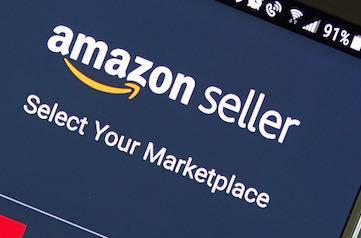
Understanding the Amazon Marketplace Landscape
To navigate the vast and intricate landscape of the Amazon Marketplace, it’s crucial to grasp the various elements that influence a seller’s success. Amazon isn’t just an e-commerce platform; it’s a dynamic ecosystem where understanding the rules of engagement can significantly impact your profits. In this arena, staying informed about the latest trends, algorithms, and consumer behaviors can be the key to unlocking your financial potential.
One of the first things to consider is the competitive landscape. With millions of sellers vying for attention, standing out is essential. This requires not only a great product but also an effective marketing strategy. Identify your niche and analyze your competitors. Here are some tips to gain insight:
- Use tools like Jungle Scout or Helium 10 to track competitor performance.
- Analyze product reviews to understand customer pain points and preferences.
- Study pricing strategies to determine the optimal price point for your products.
Next, understanding Amazon’s algorithm is paramount. The A9 algorithm determines how products are ranked in search results, directly influencing visibility and sales. Sellers should focus on the following factors:
- Keyword optimization in titles, descriptions, and backend search terms.
- Competitive pricing and offers, including promotions and discounts.
- High-quality images and engaging product descriptions that convert visitors into buyers.
Another crucial aspect is the fulfillment options available. Amazon offers various ways to manage product delivery, each with its benefits and drawbacks. Familiarizing yourself with these options can enhance your logistics strategy:
| Fulfillment Method | Pros | Cons |
|---|---|---|
| Fulfilled by Amazon (FBA) | Prime eligibility, customer service handled by Amazon | Fees can be high, less control over inventory |
| Fulfilled by Merchant (FBM) | More control over inventory, potential for lower costs | Requires more effort in shipping and handling, no Prime eligibility |
Additionally, leveraging advertising tools within the Amazon ecosystem can amplify your reach. Sponsored Products, Sponsored Brands, and Product Display Ads allow sellers to gain visibility and drive sales. Experimenting with different ad formats can help you find what resonates with your target audience. Start small, analyze the results, and scale what works best.
Lastly, don’t overlook the power of building a brand. Developing a unique brand identity can foster customer loyalty and increase repeat sales. Engage with your customers through social media, solicit feedback, and create an email list to keep your audience informed about new releases or promotions. A strong brand can set you apart from competitors and build trust with consumers.
understanding the intricate components of the Amazon Marketplace is essential for any seller looking to thrive. By focusing on competition analysis, algorithm insights, fulfillment strategies, advertising tools, and brand development, you’ll be well-equipped to carve out a successful niche in this bustling marketplace.
Choosing the Right Products to Sell for Maximum Profit
Finding the right products to sell on Amazon is crucial for maximizing your profits. With millions of items available, knowing what to choose can feel overwhelming. However, with a bit of strategy and research, you can identify products that not only sell but also yield a healthy profit margin.
Start by conducting thorough market research. Use tools like Jungle Scout or Helium 10 to analyze product trends, sales estimates, and competition levels. Look for products that have a steady demand but limited competition. This sweet spot often leads to higher profitability.
When selecting products, consider their profit margins. A good rule of thumb is to aim for a minimum of 30% margin after accounting for Amazon fees, shipping, and production costs. Here’s a simple table to illustrate potential profit margins:
| Product Type | Cost Price | Selling Price | Estimated Profit Margin |
|---|---|---|---|
| Gadgets | $20 | $50 | 40% |
| Home Essentials | $10 | $30 | 33% |
| Health Products | $15 | $45 | 50% |
Another important factor is to target a niche market. Selling unique or specialized products can reduce competition and attract dedicated buyers. Consider the following categories that often provide opportunities:
- Eco-friendly products – Growing consumer demand for sustainable options.
- Pet supplies – A consistently profitable market with loyal customers.
- Fitness gear – Increasing health consciousness drives this category.
- DIY tools – Home improvement enthusiasts are always looking for quality supplies.
Don’t underestimate the power of seasonal products. Items that sell well during certain times of the year can boost your overall sales. For example, holiday decorations or summer outdoor gear can generate significant profits if timed correctly. Keep an eye on trends and capitalize on them when they peak.
consider leveraging Amazon’s private label program. By creating your own brand, you can differentiate your products from competitors and command higher prices. This strategy not only increases your profit margins but also builds brand loyalty among customers.
selecting the right products to sell on Amazon requires a combination of research, market insight, and strategic thinking. By focusing on profitability, niche markets, and seasonal trends, you can position yourself for success and maximize your earnings in the competitive landscape of e-commerce.
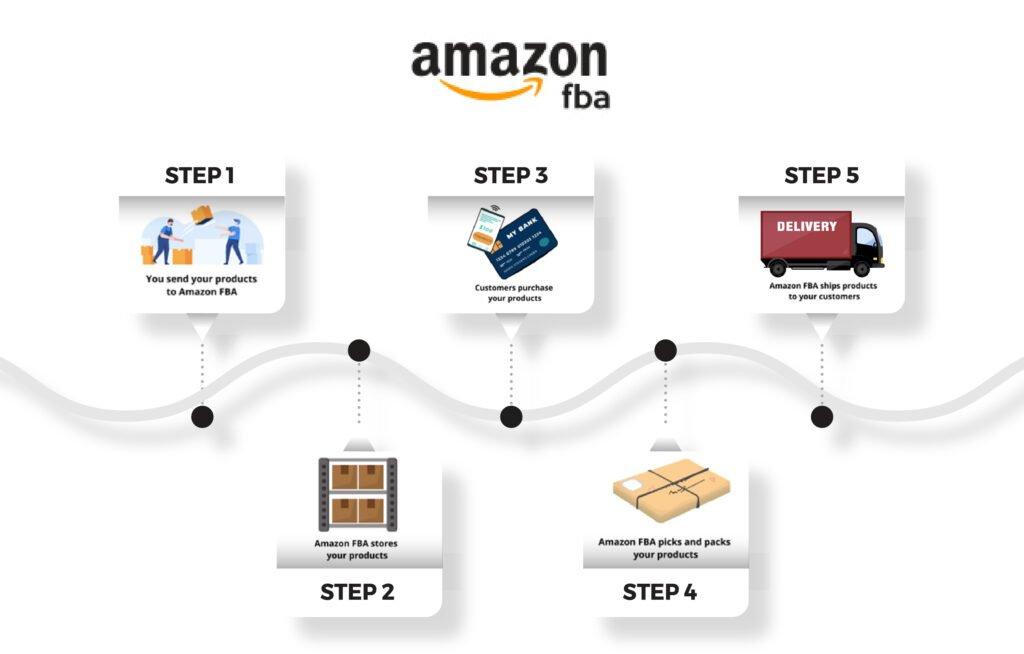
Mastering Amazon FBA for Hassle-Free Sales
Are you ready to transform your online selling experience and unlock the potential of Amazon FBA? With Fulfillment by Amazon, you can focus on growing your business while Amazon handles the logistics. Imagine a world where you don’t have to worry about storage, packing, or shipping. Let’s explore how you can master Amazon FBA for effortless success.
First and foremost, understanding the FBA process is crucial. When you enroll in Amazon FBA, you send your products to Amazon’s fulfillment center. From there, Amazon takes care of storage, order processing, and customer service. Here’s what you can expect:
- Storage: Your products are stored securely until sold.
- Order Fulfillment: Amazon picks, packs, and ships your products directly to customers.
- Customer Service: Any returns or inquiries are handled by Amazon’s support team.
One of the best aspects of utilizing Amazon FBA is the ability to tap into its vast customer base. With millions of active users, your products are instantly visible to a larger audience. But visibility alone isn’t enough; you need to optimize your listings. Here are some tips for creating compelling product listings:
- Keyword Optimization: Use relevant keywords in your product titles and descriptions to improve search rankings.
- High-Quality Images: Invest in professional photography to showcase your products effectively.
- Persuasive Descriptions: Write engaging descriptions that highlight the features and benefits of your products.
Pricing your items competitively can significantly impact your sales. Conduct thorough market research to set prices that attract customers while still ensuring profitability. Consider using tools like Amazon’s “Automate Pricing” feature to adjust prices in real-time based on competition.
Additionally, leveraging Amazon’s advertising options can exponentially increase your product visibility. Sponsored Products and Sponsored Brands ads allow you to promote your listings directly on the Amazon platform. Here’s how you can effectively use Amazon Ads:
- Targeted Keywords: Choose keywords that potential buyers are likely to search for.
- Budget Control: Set a daily budget to manage your advertising expenses.
- Monitor Performance: Regularly review your ad campaigns to optimize for better ROI.
Lastly, don’t underestimate the power of customer reviews. Positive feedback can significantly boost your product’s credibility and sales. Encourage satisfied customers to leave reviews by following up after purchases. Also, always respond to negative feedback promptly and professionally to maintain a good seller reputation.
To summarize, mastering Amazon FBA is all about understanding the process, optimizing your listings, competitive pricing, effective advertising, and maintaining excellent customer relations. By implementing these strategies, you can create a hassle-free selling experience and watch your profits soar on Amazon.
Crafting Irresistible Product Listings That Convert
Creating a product listing that captivates potential buyers is crucial for success on Amazon. When crafting your listings, remember that first impressions matter. A well-optimized product page not only attracts attention but also encourages shoppers to click that “Add to Cart” button. Here are essential elements to consider:
- Compelling Titles: Your product title should be clear and concise, incorporating relevant keywords while highlighting the unique features of your product. Think about what customers would search for and make sure that’s reflected in the title.
- High-Quality Images: Images are your product’s first visual impression. Use multiple high-resolution images that showcase your product from different angles, including close-ups of important features. Consider lifestyle images that show your product in use.
- Detailed Descriptions: Write product descriptions that are informative yet engaging. Break down the features and benefits in a way that speaks to your target audience. Use bullet points for key specifications to improve readability.
- Effective Use of Keywords: Conduct thorough keyword research to identify the terms your potential customers are using. Incorporate these keywords naturally throughout your listing, including in the title, bullet points, and description.
Another area to focus on is customer reviews. Positive reviews can significantly impact purchasing decisions, so it’s essential to encourage satisfied customers to leave feedback. Respond to reviews, whether positive or negative, to show potential buyers that you are engaged and care about their experience. This engagement builds trust and can convert browsers into buyers.
Consider utilizing Amazon’s A+ Content feature, which allows you to enhance your product descriptions with additional images, videos, and text. This not only makes your listing more visually appealing but also allows you to showcase your brand’s story and values more effectively. A well-crafted A+ page can lead to increased conversions and a better customer experience.
| Key Element | Impact on Sales |
|---|---|
| Title Optimization | High – Helps in search visibility |
| Image Quality | Very High – Influences buy decisions |
| Customer Reviews | High – Builds trust and credibility |
| A+ Content | High – Enhances engagement |
Lastly, don’t overlook the power of pricing strategy. Competitive pricing can make or break a sale. Consider using psychological pricing techniques, like setting prices just below whole numbers (e.g., $19.99 instead of $20). Additionally, running promotional offers, such as time-limited discounts or bundling products, can create urgency and drive conversions.
By paying attention to these details, you can significantly enhance your product listings on Amazon, transforming them into powerful sales tools that not only attract clicks but also convert those clicks into sales.
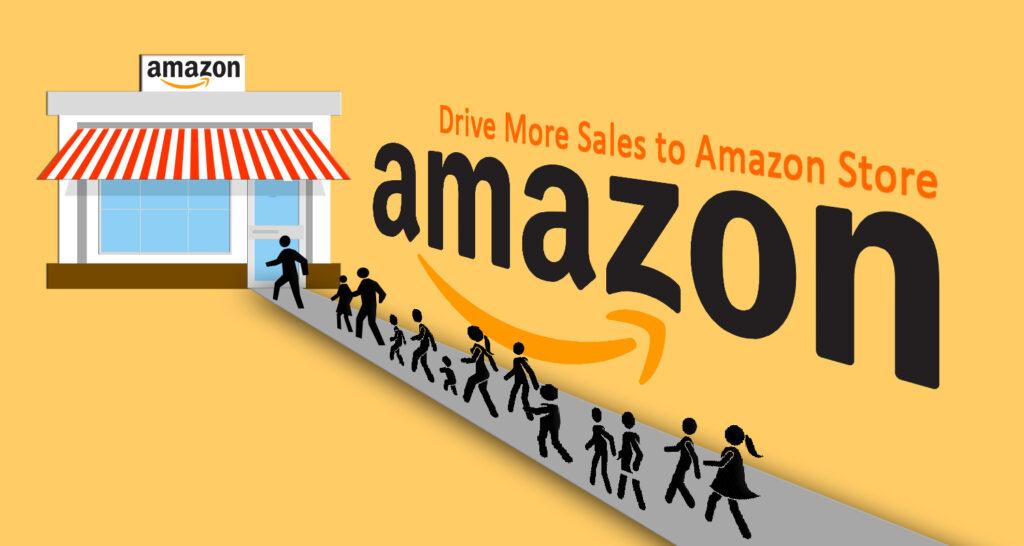
Harnessing the Power of Amazon Advertising
When it comes to maximizing your revenue on Amazon, tapping into the vast potential of Amazon Advertising is essential. This powerful tool allows sellers to increase visibility and drive traffic to their products, ultimately leading to increased sales. Here’s how you can effectively harness this advertising platform to boost your business.
Choose the Right Ad Type
Amazon offers several advertising options tailored to different goals. Familiarizing yourself with these can help you choose the right approach:
- Sponsored Products: Perfect for promoting individual listings, these ads appear in search results and on product pages, making them highly visible.
- Sponsored Brands: Ideal for building brand awareness, these ads feature your logo and multiple products, encouraging customers to explore your brand.
- Sponsored Display: These ads target users based on their shopping behavior, allowing you to re-engage potential customers who have previously viewed your products.
Optimize Your Product Listings
Before launching any ad campaign, ensure your product listings are fully optimized. This includes:
- High-quality images that showcase your product from multiple angles.
- Compelling product descriptions that highlight key features and benefits.
- Strategically chosen keywords to improve search visibility.
A well-optimized listing not only attracts clicks but converts them into sales, making your advertising efforts far more effective.
Utilize Targeting Options
Amazon’s targeting options allow you to tailor your ads to specific audiences. You can choose between:
- Keyword Targeting: Select relevant keywords your target audience is likely to search for.
- Product Targeting: Show your ads on competitor product pages or similar items, directly reaching interested buyers.
- Audiences: Target ads based on demographics or past shopping behavior, ensuring your message reaches the right people.
Monitor and Adjust Your Campaigns
Once your campaigns are live, it’s crucial to keep an eye on their performance. Regularly check metrics such as:
- Click-through rate (CTR)
- Conversion rate
- Advertising cost of sales (ACoS)
Use these insights to make data-driven adjustments. For instance, if a specific keyword isn’t performing well, consider pausing it or reallocating your budget to better-performing ads.
Leverage A/B Testing
A/B testing different ad variations is a proven way to optimize your campaigns. Try experimenting with:
- Different headlines and calls to action
- Various images to see which resonates more with your audience
- Alternative targeting strategies to assess which yields better results
This process allows you to refine your approach continuously and ensures that your advertising budget is being utilized effectively.
Consider Seasonal Trends
Aligning your advertising campaigns with seasonal trends can yield significant results. Plan ahead for key shopping periods—such as Black Friday, Cyber Monday, or holiday seasons. By adjusting your budget and strategies to these peak times, you can take full advantage of increased shopping activity.
By understanding and implementing these strategies, you can unlock the full potential of Amazon Advertising, transforming your selling experience and paving the way for increased profit margins. The right approach can make all the difference in navigating the competitive landscape of online retail.
Building a Strong Brand Presence on Amazon
In the competitive landscape of Amazon, establishing a robust brand presence is not just beneficial—it’s essential. A strong brand not only fosters trust and loyalty among consumers but also enhances visibility and sales. Here are key strategies to elevate your brand on Amazon:
- Create a Compelling Brand Story: Narrate your brand’s journey, values, and mission. A well-crafted story connects with customers on an emotional level, making them more likely to choose your products over competitors’.
- Optimize Your Product Listings: Use high-quality images and engaging descriptions. Incorporate relevant keywords naturally to improve search visibility while ensuring the content remains user-friendly.
- Utilize Amazon Brand Registry: Registering your brand gives you access to powerful tools to protect your intellectual property and enhance your brand’s presence on the platform.
- Leverage Enhanced Brand Content (EBC): Take advantage of EBC to showcase your products with rich media, detailed descriptions, and comparison charts, helping customers make informed decisions.
- Encourage Customer Reviews: Positive reviews build credibility. Implement follow-up emails and incentives for feedback, ensuring that your customers feel valued and heard.
A solid marketing strategy is fundamental for brand growth. Take these steps to amplify your presence:
- Invest in Amazon Advertising: Utilize Sponsored Products, Sponsored Brands, and Sponsored Display ads to increase visibility. Target specific keywords and demographics to reach your ideal customers effectively.
- Engage with Social Media: Create social proof by showcasing your products on platforms like Instagram and Facebook. Influencer partnerships can also drive traffic to your Amazon listings.
- Run Promotions and Discounts: Special offers can entice new customers and encourage repeat purchases. Flash sales or limited-time offers create urgency.
| Strategy | Benefit |
|---|---|
| Brand Storytelling | Builds emotional connections |
| Enhanced Brand Content | Improves conversion rates |
| Social Media Engagement | Increases brand visibility |
| Customer Reviews | Enhances credibility |
| Promotions and Discounts | Attracts new customers |
consistency is key. Ensure your messaging, visuals, and customer service align across all platforms, creating a seamless experience for your audience. By cultivating a strong brand presence on Amazon, you not only enhance your marketability but also foster long-term relationships with your customers. This solid foundation will lead to sustained growth and profitability in the ever-evolving marketplace.

Leveraging Customer Reviews to Boost Sales
Customer reviews play a pivotal role in shaping the purchasing decisions of online shoppers. In a marketplace as competitive as Amazon, leveraging these testimonials can significantly enhance your sales figures. Here’s how you can effectively use customer reviews to your advantage.
Highlight Positive Feedback
One of the simplest ways to leverage customer reviews is to showcase positive feedback prominently on your product pages. When potential buyers see a high rating, they’re more likely to trust your product. Here are a few strategies:
- Use snippets in your product description: Incorporate standout phrases from reviews directly into your product descriptions to reinforce value.
- Create a “Reviews” section: Dedicate a section of your product listing to highlight customer testimonials, making it easily accessible.
- Utilize images with reviews: If customers share images of your product, pair them with their reviews to add authenticity and visual appeal.
Addressing Negative Reviews
While it may seem counterintuitive, addressing negative reviews can actually work in your favor. Acknowledging and responding to criticism shows potential customers that you value feedback and are committed to improving their experience. Consider these approaches:
- Respond promptly: Show that you care by addressing issues raised by customers quickly and professionally.
- Turn negatives into positives: Explain how you’ve improved the product or service in response to the feedback.
- Encourage dialogue: Invite dissatisfied customers to reach out privately, showcasing your willingness to resolve issues.
Encourage New Reviews
Actively soliciting reviews from satisfied customers can help build a positive reputation. Here are some methods to encourage this:
- Follow-up emails: Send thank-you emails after a purchase, encouraging customers to leave a review, perhaps even with an incentive.
- Social media shout-outs: Encourage customers to share their purchases on social media and tag your brand, creating organic reviews.
- Incentivize reviews: Consider offering discounts on future purchases for customers who provide feedback.
Utilizing Review Analytics
Dive into the data behind customer reviews to gain insights into what your buyers love and what needs improvement. Use this information to refine your marketing strategies:
- Identify trends: Look for common themes in reviews to understand customer needs better.
- Adjust product offerings: Base new product developments on the feedback you receive.
- Monitor competitor reviews: Analyze what customers appreciate or dislike about similar products to find your niche.
The impact of reviews on customer trust cannot be overstated. By strategically integrating customer testimonials into your sales approach, you can not only boost your sales but also build a loyal customer base that feels heard and valued. Remember, each review is an opportunity; make sure to seize it!

Utilizing Social Media to Drive Traffic to Your Listings
In today’s digital landscape, social media is an essential tool for driving traffic to your Amazon listings. With billions of users actively engaging on platforms like Facebook, Instagram, and Twitter, harnessing the power of social media can significantly boost your visibility and sales. Here are some effective strategies to make the most of your social media presence:
- Create Eye-Catching Visuals: High-quality images and videos of your products can grab attention. Use platforms like Canva to design professional-looking graphics that showcase your offerings.
- Leverage Influencer Marketing: Collaborating with influencers can help you reach a broader audience. Choose influencers that align with your brand to promote your listings authentically.
- Engage with Your Audience: Respond to comments and messages promptly. Creating a dialogue with potential customers builds trust and encourages them to check out your listings.
- Share User-Generated Content: Encourage customers to share photos of your products in use. Highlighting these posts on your social media can create a sense of community and authenticity.
Making your social media posts engaging is crucial. Sharing tips, behind-the-scenes looks, and even customer testimonials can make your brand more relatable. Use stories and reels to give a quick glimpse of your products in action. Not only does this create excitement, but it also encourages shares and saves, driving more traffic to your listings.
Another key tactic is to utilize paid advertising. Platforms like Facebook and Instagram offer targeted ad options that allow you to reach specific demographics. By tailoring your ads based on interests and behaviors, you can direct potential buyers straight to your Amazon listings. Consider the following ad formats:
| Ad Format | Benefits |
|---|---|
| Carousel Ads | Showcase multiple products or features in a single ad. |
| Video Ads | Engage users with dynamic content demonstrating your product. |
| Story Ads | Utilize full-screen ads for immersive experiences. |
Don’t underestimate the power of hashtags! Using relevant hashtags can increase the discoverability of your posts. Research trending tags in your niche and mix them with broader ones to reach a wider audience. This strategy not only increases visibility but also connects you with users who are genuinely interested in your products.
Lastly, consider creating social media contests or giveaways. Encouraging users to share your posts or tag friends can lead to organic reach and engagement. This not only drives traffic but also cultivates a buzz around your products, making potential customers more likely to explore your Amazon listings. Keep your contests simple and related to your products for maximum effectiveness.

Exploring Amazon Affiliate Marketing Opportunities
Venturing into the world of affiliate marketing can be both exciting and lucrative, especially when it comes to tapping into the vast resources of Amazon. With millions of products available, the opportunities are endless. But how do you get started? Here’s a breakdown of key strategies to maximize your Amazon affiliate marketing efforts.
First and foremost, it’s essential to choose a niche that resonates with your interests and expertise. Focus on areas where you can offer genuine recommendations. Some popular niches include:
- Technology and Gadgets
- Health and Wellness
- Home and Kitchen
- Fashion and Beauty
- Outdoor and Sports Equipment
Once you’ve selected your niche, the next step is to create engaging content. Whether it’s through a blog, YouTube channel, or social media platforms, high-quality content that addresses your audience’s pain points will drive traffic. Consider strategies like:
- Product Reviews: In-depth reviews can help potential buyers make informed decisions.
- Comparison Articles: Highlight the differences between similar products to guide your audience.
- How-to Guides: Incorporate products into practical guides, making them more appealing.
Linking products naturally within your content is crucial. Amazon provides unique affiliate links that you can embed in your articles. Make your links stand out with enticing calls to action, such as:
- “Check out this amazing gadget!”
- “See why everyone loves this kitchen tool!”
- “Get your fitness on with this must-have equipment!”
For enhanced visibility, consider leveraging SEO techniques. Research keywords relevant to your niche using tools like Google Keyword Planner or SEMrush. Incorporate these keywords into your content, headings, and meta descriptions. This can significantly boost your chances of ranking higher in search engine results.
Another valuable strategy is to utilize social media platforms. Share your content across various channels and engage with your followers. Create buzz around the products you promote, using eye-catching images and captivating captions. Don’t forget to join relevant groups or forums where potential buyers congregate; being part of these communities can enhance your credibility.
Tracking your performance is essential. Use Amazon’s affiliate dashboard to monitor clicks, conversions, and commissions. This data can help you identify what’s working and what needs improvement. Adjust your strategies based on real-time insights to optimize your earnings.
| Niche | Potential Earnings | Affiliate Competition |
|---|---|---|
| Technology | High | Moderate |
| Health | Moderate | High |
| Home | Medium | Low |
| Fashion | High | High |
By implementing these strategies, you can pave your way to success in Amazon affiliate marketing. With persistence and creativity, the potential to generate income is truly within your reach. Embrace the journey and watch your efforts flourish!
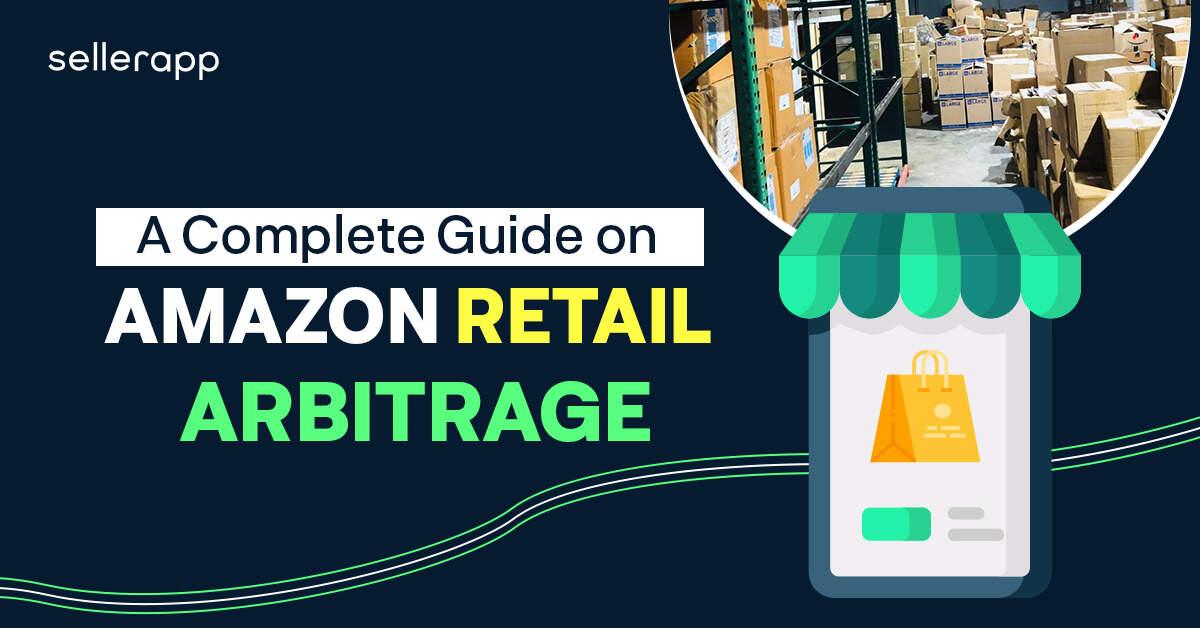
Diving into Retail Arbitrage for Quick Wins
Diving into retail arbitrage can be one of the quickest pathways to making money on Amazon. This method revolves around purchasing discounted products from retail stores and reselling them at a higher price on Amazon. It’s a straightforward strategy that requires little upfront investment, making it ideal for beginners looking for fast returns.
To get started, here are some essential steps to consider:
- Research Products: Use tools like the Amazon Seller App to scan barcodes and check current prices, sales rank, and competition. Look for items with a significant price difference between retail stores and Amazon.
- Visit Local Stores: Hit up clearance sections, discount stores, and wholesalers. Stores like Walmart, Target, and dollar stores often have hidden gems just waiting to be resold.
- Calculate Profit Margins: Ensure your potential selling price on Amazon covers the costs of sourcing, shipping, and Amazon fees. A simple formula to remember is: Selling Price - Costs = Profit.
- Build an Inventory: Start small but aim to create a diverse inventory. This will help you mitigate risks if certain products don’t sell as expected.
One of the keys to success in retail arbitrage is knowing when to pivot. Here’s a simple table outlining some popular product categories and tips for maximizing your profits:
| Category | Tip |
|---|---|
| Toys & Games | Look for seasonal sales and limited-edition releases. |
| Home & Kitchen | Focus on trending home improvement items. |
| Health & Personal Care | Check for clearance items; replenish hygiene products. |
| Electronics | Invest in refurbished or open-box deals. |
Success in retail arbitrage also hinges on effective inventory management. Keep track of your purchases, sales, and profits meticulously. Using spreadsheets or specialized software can streamline this process. This way, you’ll quickly see which products are performing well and which ones should be phased out.
Consider joining online communities or forums focused on retail arbitrage. Sharing experiences, tips, and leads can be invaluable. Learning from others can also help you avoid common pitfalls and refine your approach as you scale your business.
never underestimate the power of customer service. Positive feedback can help you establish a solid reputation, leading to greater sales. Encourage buyers to leave reviews and be proactive in addressing any issues that arise. With the right approach, retail arbitrage can yield impressive profits and set you on a path to becoming a successful Amazon seller.
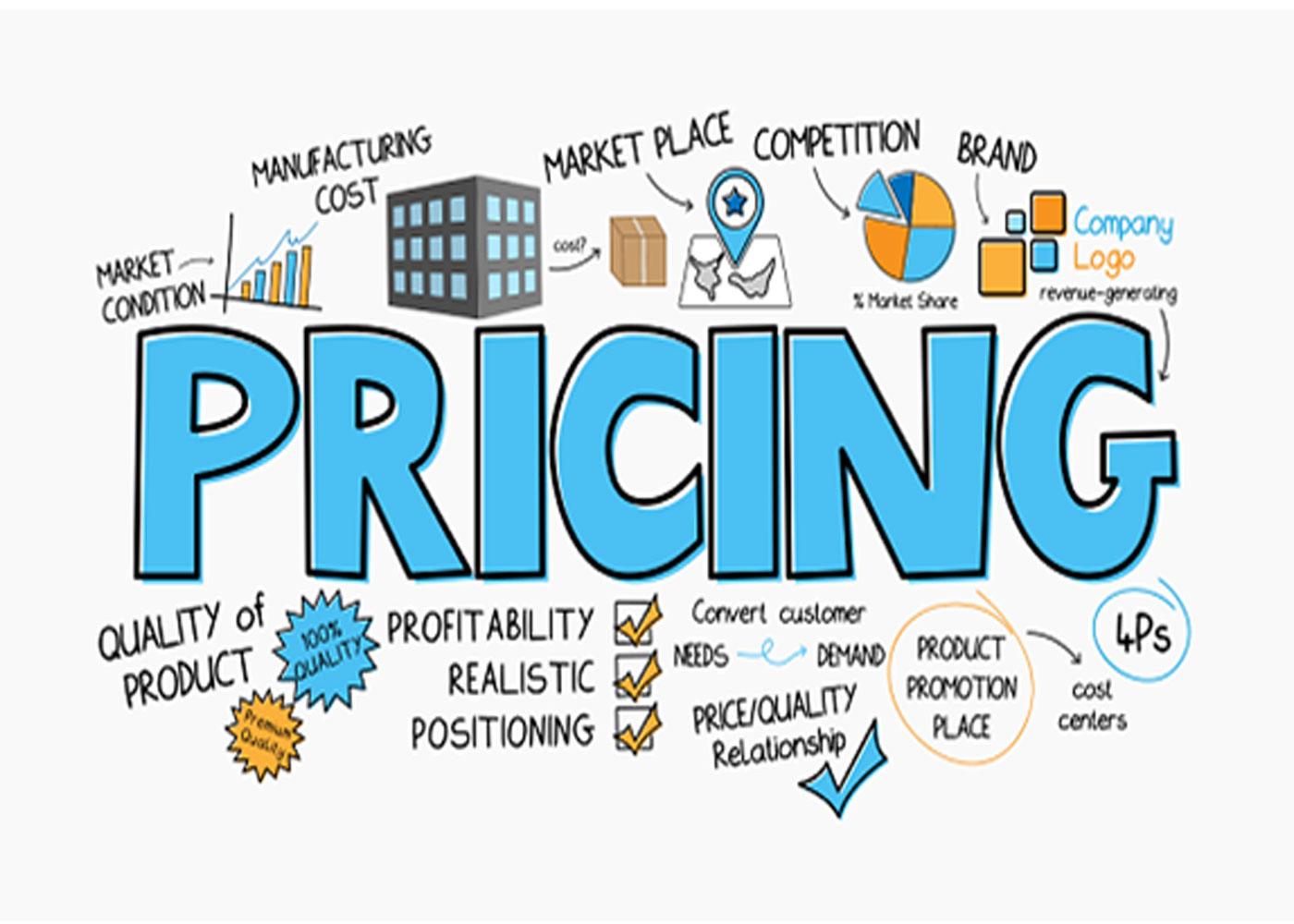
Implementing Effective Pricing Strategies
Getting your pricing strategy right can make a world of difference in your Amazon business. It’s not just about putting a price tag on your products; it’s about understanding your market, your competitors, and the psychology of your customers. Armed with the right strategies, you can significantly boost your sales and profit margins.
First and foremost, consider employing dynamic pricing. This strategy involves adjusting prices in real-time based on market demand, competitor prices, and other external factors. Tools like repricers can automate this process for you, ensuring that your prices remain competitive without constant manual adjustments. However, it’s essential to monitor how these changes affect your sales volume and profitability.
Another effective strategy is to use psychological pricing. This involves setting your prices just below a round number (e.g., $19.99 instead of $20). Studies show that customers perceive these prices as significantly lower, which can encourage purchases. You might also want to experiment with rounding prices up for premium products, as this can enhance perceived value.
Don’t underestimate the power of bundling products. Offering multiple related items at a slightly discounted rate can entice customers to buy more. For example, if you sell kitchen tools, consider bundling a knife set with a cutting board. This not only increases the average order value but also enhances customer satisfaction by providing them with a complete solution.
Additionally, implementing a freemium model for your services or digital products can attract a broader audience. By offering a base product for free while charging for premium features, you can entice customers to try before they buy. This strategy works particularly well for software and subscriptions, allowing customers to experience the value before committing financially.
Transparency in pricing can also build trust with your customers. Clearly display any additional costs, such as shipping or taxes, upfront. This prevents shopping cart abandonment due to unexpected charges at checkout. Customers appreciate honesty, and a transparent pricing strategy can enhance loyalty and repeat purchases.
always be prepared to test and iterate. What works for one product or audience may not work for another. Use A/B testing to experiment with different price points or promotional offers. Monitor your analytics closely to identify what resonates with your customers, and be willing to adapt your strategy based on real-time data.
| Pricing Strategy | Key Benefit |
|---|---|
| Dynamic Pricing | Stay competitive in real-time |
| Psychological Pricing | Improve perceived value |
| Product Bundling | Increase average order value |
| Freemium Model | Attract new customers |
| Transparent Pricing | Build customer trust |
| A/B Testing | Optimize based on customer feedback |
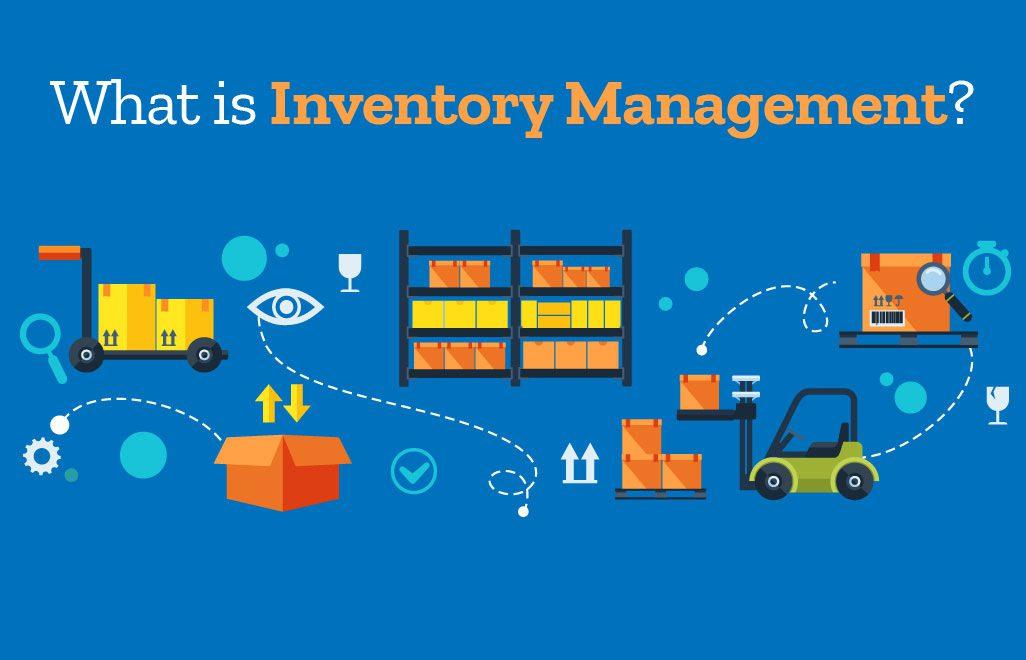
Optimizing Your Inventory Management for Success
Effective inventory management is a critical pillar for any Amazon seller aiming for success. Streamlining your inventory processes not only reduces costs but also enhances sales potential. Here are some strategies to consider:
- Use Inventory Management Software: Invest in reliable software that offers real-time tracking, demand forecasting, and alerts for low stock. This can save you from stockouts and overstock situations.
- Implement the FIFO Method: Follow the First In, First Out strategy to ensure older products sell before newer ones. This minimizes losses from expired or obsolete stock.
- Analyze Sales Trends: Regularly review your sales data to identify peak seasons and slow-moving items. Adjust your inventory accordingly to meet demand without overcommitting funds.
Another key aspect is categorizing your inventory efficiently. By grouping products based on performance or type, you can focus on what sells best and ensure that those items are always in stock. Consider maintaining a simple inventory table:
| Product Category | Stock Level | Sales Trend |
|---|---|---|
| Electronics | Low | Increasing |
| Home Goods | Medium | Stable |
| Clothing | High | Decreasing |
Don’t underestimate the power of periodic audits. Regularly checking your inventory helps identify discrepancies, prevent shrinkage, and ensures that your stock levels align with your sales data. Additionally, consider these tips:
- Optimize Reorder Points: Set precise reorder points based on your sales velocity and lead time to maintain a balanced inventory.
- Automate Replenishment: Use automation tools that can reorder stock automatically when it hits a certain threshold, reducing the burden on you.
- Leverage Amazon FBA: Consider Fulfillment by Amazon as it simplifies shipping, storage, and returns, allowing you to focus more on scaling your business.
Lastly, foster strong relationships with your suppliers. Regular communication can lead to better terms, quick restocking capabilities, and insider knowledge about upcoming trends. By optimizing these facets of your inventory management, you position your Amazon business for sustainable growth and profitability.

Navigating Amazon’s Rules and Regulations
When it comes to selling on Amazon, understanding the platform’s rules and regulations is crucial for your success. Amazon operates with a set of guidelines that ensure a fair marketplace for both sellers and buyers. By familiarizing yourself with these rules, you can avoid pitfalls that might hinder your ability to make money.
First things first: you need to know the Amazon Seller Code of Conduct. This code outlines the expectations Amazon has for its sellers, including maintaining good customer service, fulfilling orders promptly, and providing accurate product listings. Failing to adhere to these guidelines can lead to account suspension or even permanent removal from the platform. It’s essential to read through these rules and integrate them into your business practices.
Another critical aspect is understanding Amazon’s Product Listing Guidelines. Your product listings should be clear, concise, and compliant with Amazon’s requirements regarding images, titles, and descriptions. Here are some key points to keep in mind:
- Use high-quality images that accurately represent your product.
- Craft informative and keyword-rich descriptions.
- Avoid misleading information that can lead to customer complaints.
Compliance with Amazon’s Pricing Policies is also vital. Ensure you are aware of their rules about price gouging, especially during high-demand periods. Maintaining competitive pricing can help you avoid disputes and foster better customer relationships.
Another area to focus on is the Fulfillment by Amazon (FBA) guidelines if you choose to use this service. FBA can help streamline your logistics, but it comes with its own set of rules regarding inventory management and shipping. Make sure you adhere to the following:
- Label products correctly.
- Ship inventory to Amazon warehouses as directed.
- Monitor your inventory levels to prevent stockouts.
To help you better navigate these rules, consider utilizing tools for compliance monitoring. There are various software solutions available that can alert you when you’re at risk of violating Amazon’s policies. This proactive approach can save you time and protect your seller account.
staying updated on any changes to Amazon’s policies is essential. Amazon frequently revises its regulations to enhance the customer experience and improve seller performance. Regularly checking the Amazon Seller Central and subscribing to relevant newsletters can keep you informed of the latest updates.

Scaling Your Amazon Business for Long-Term Growth
As your Amazon business begins to thrive, it’s crucial to adopt a mindset geared towards scaling. Growth shouldn’t be a mere ambition, but a strategic mission that aligns with your long-term goals. Embracing the right practices can not only enhance your profitability but also ensure sustainability in a highly competitive marketplace.
One effective strategy is to automate your operations. Investing in software tools can streamline various processes, from inventory management to customer service. Automation reduces the risk of human error, saves time, and allows you to focus on strategic growth initiatives. Consider tools that offer:
- Inventory tracking
- Automated repricing
- Customer relationship management
- Sales analytics
Another pivotal aspect of scaling is expanding your product line. Diversifying your offerings can help mitigate risk and cater to a broader audience. Here are a few ways to identify new products to add:
- Analyze current market trends and consumer behavior
- Utilize keyword research to find high-demand items
- Explore upselling and cross-selling opportunities
- Consider private labeling or bundles
Moreover, focusing on customer experience will significantly impact your growth trajectory. Happy customers are likely to return and recommend your products, amplifying your brand’s reach. Strategies to enhance customer experience include:
- Providing exceptional customer support
- Encouraging and responding to reviews
- Offering hassle-free returns
- Personalizing communications and marketing efforts
Furthermore, consider leveraging Amazon’s advertising tools to boost visibility. Sponsored ads can increase your product exposure, making it easier for potential customers to discover your offerings. Invest time in learning how to optimize these advertisements to yield the highest return on investment. A well-structured ad campaign can significantly elevate sales and brand awareness.
| Ad Type | Best For | Key Benefit |
|---|---|---|
| Sponsored Products | Single products | Increased visibility in search results |
| Sponsored Brands | Brand awareness | Showcase multiple products |
| Amazon DSP | Retargeting | Reach users off Amazon |
Lastly, don’t overlook the power of data analysis. Regularly assessing your sales data can offer insights into what’s working and what needs adjustment. Utilize Amazon’s Seller Central analytics and other tools to track key performance indicators (KPIs) such as:
- Conversion rates
- Cost of goods sold (COGS)
- Profit margins
- Customer acquisition costs
This data-driven approach ensures that every decision you make is grounded in evidence, allowing you to pivot quickly in response to market shifts. Ultimately, is about being proactive, adaptable, and prepared to seize opportunities as they arise.
Frequently Asked Questions (FAQ)
Q&A on “How to Make Money on Amazon: 19 Proven Strategies (2025)”
Q1: Is it really possible to make money on Amazon?
A1: Absolutely! Amazon is one of the largest online marketplaces in the world, and there are countless opportunities for individuals to generate income. Whether you’re looking to sell products, publish books, or even offer services, there’s a strategy for everyone. The key is to find what aligns with your skills and interests.
Q2: What are some of the most effective ways to make money on Amazon?
A2: There are so many strategies! Some of the most popular include:
- Retail Arbitrage: Buying discounted products and reselling them at a profit.
- Private Labeling: Creating your own brand and sourcing products to sell under that label.
- Fulfillment by Amazon (FBA): Amazon handles storage, shipment, and customer service for your products.
- Kindle Direct Publishing (KDP): Writing and publishing eBooks or paperbacks.
- Merch by Amazon: Designing and selling t-shirts and other apparel without holding inventory.
And that’s just the tip of the iceberg! Each strategy has its own unique benefits.
Q3: How much money can I realistically expect to make?
A3: Earnings can vary widely based on the strategy you choose, the time and effort you invest, and the market demand. Some sellers make a few hundred dollars a month, while others earn six figures annually. The beauty of these strategies is that your income potential is largely up to you. The more you put in, the more you can get out!
Q4: Do I need a lot of money to start making money on Amazon?
A4: Not at all! Many of these strategies require minimal upfront investment. For instance, retail arbitrage can start with just a few hundred dollars, while KDP is virtually free to begin. It’s important to choose a strategy that fits your budget and gradually scale as you learn and earn.
Q5: What if I have no experience in selling or online businesses?
A5: No problem! Many successful Amazon sellers started with zero experience. There are tons of resources available, including free online courses, YouTube videos, and community forums. Plus, our article provides detailed guidance on each strategy, so you’ll be well-equipped to dive in!
Q6: What are some common mistakes to avoid when starting?
A6: Great question! Here are a few pitfalls to steer clear of:
- Ignoring Research: Always research your products and market trends before diving in.
- Underestimating Costs: Factor in fees, shipping, and other expenses to avoid surprises.
- Neglecting Customer Service: Happy customers lead to positive reviews, which are essential for success.
By avoiding these mistakes, you’ll be on a smoother path to profitability.
Q7: How can I stay updated on trends and best practices for selling on Amazon?
A7: Staying informed is crucial! Follow industry blogs, join Amazon seller groups on social media, and participate in webinars. Networking with other sellers can provide valuable insights, too. Our article is also regularly updated to reflect the latest strategies and trends, so you can refer back to it as your go-to resource!
Q8: Is it worth the effort to start making money on Amazon?
A8: Absolutely! While it may require some time and dedication upfront, the potential rewards are immense. Imagine having a side income that could eventually turn into a full-time venture! With persistence and the right strategies, making money on Amazon can be incredibly rewarding.
Q9: Where can I find more detailed information about these strategies?
A9: You’re in luck! Our article, “How to Make Money on Amazon: 19 Proven Strategies (2025)”, dives deep into each method, providing actionable steps, tips, and real-life success stories. It’s a comprehensive guide to help you start your journey. Don’t miss out!
Remember, the world of Amazon selling is vast and ever-changing. With the right mindset and strategies, you can carve out your niche and start earning. Happy selling!
The Way Forward
As we wrap up our journey through the 19 proven strategies for making money on Amazon in 2025, it’s clear that opportunities are abundant for those willing to put in the effort. Whether you’re considering starting an Amazon FBA business, diving into affiliate marketing, or exploring the world of Kindle publishing, the key takeaway is to take action. Remember, success doesn’t come overnight, but with persistence and a willingness to learn, you can carve out your niche and start generating income.
So, why wait? Now is the perfect time to tap into Amazon’s vast marketplace and turn your ideas into reality. Don’t be afraid to experiment with different strategies and see what works best for you. Join the ranks of successful Amazon entrepreneurs and watch your side hustle transform into a thriving business.
If you found these strategies helpful, share this article with your friends or colleagues who might be looking to enhance their income streams too. Together, you can navigate the exciting world of Amazon and motivate each other along the way. Here’s to your success—let’s make 2025 the year you take charge of your financial future! Happy selling!






